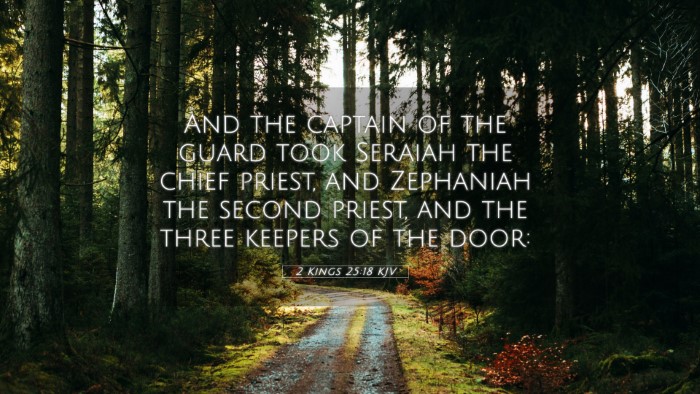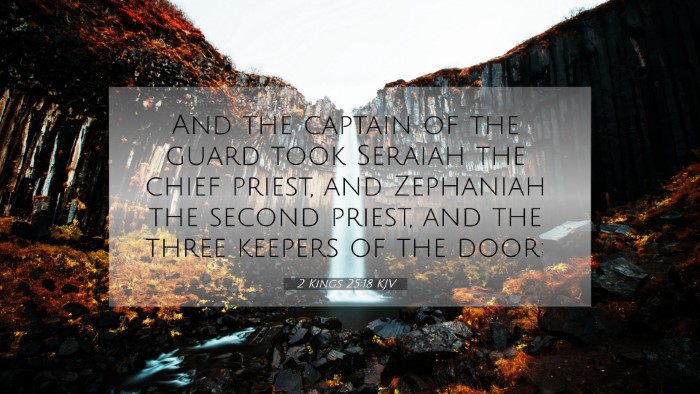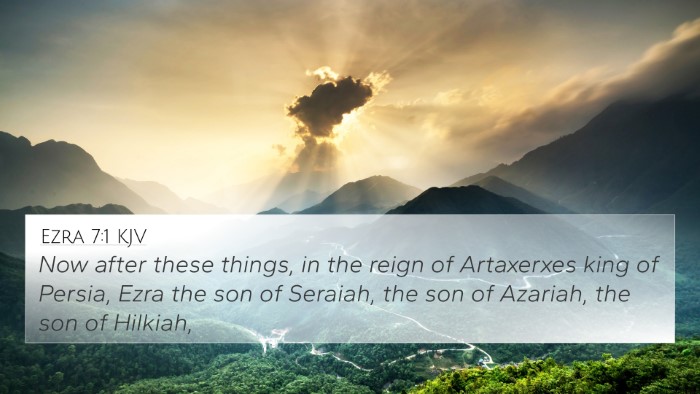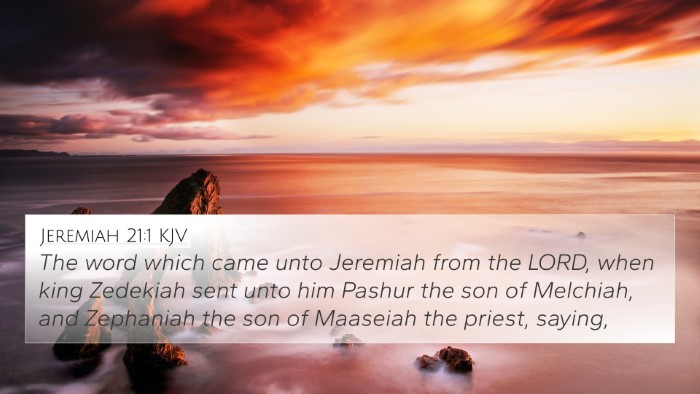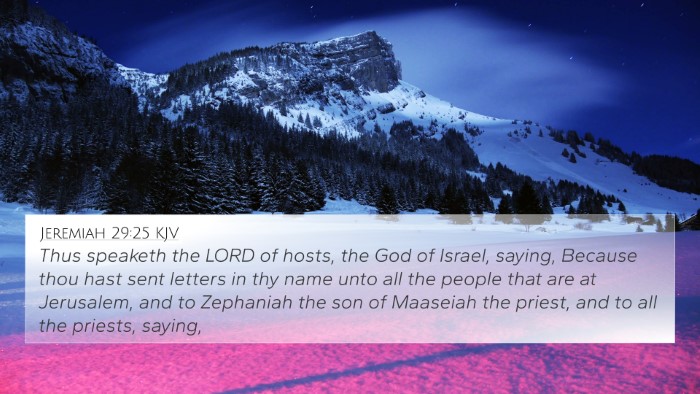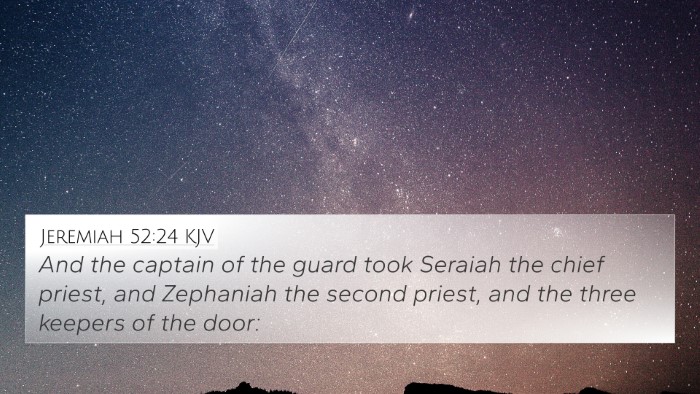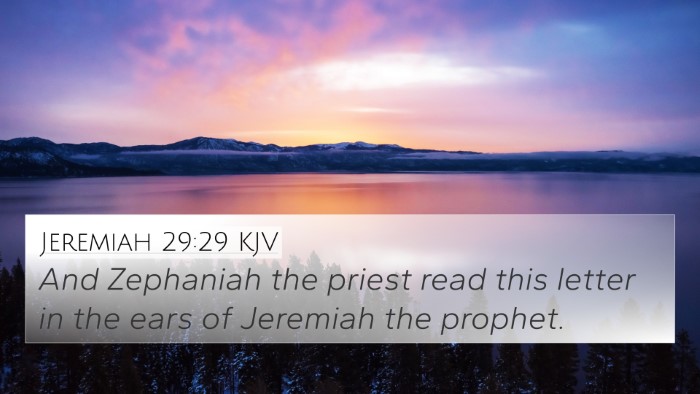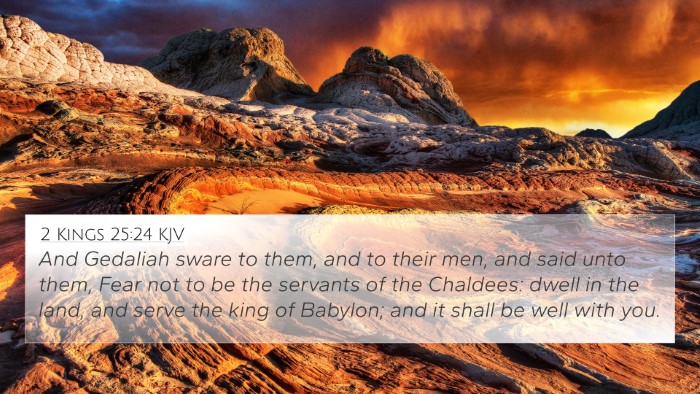Understanding 2 Kings 25:18
Verse: "And the captain of the guard took Seraiah the chief priest, and Zephaniah the second priest, and the three keepers of the door."
This verse occurs in the context of the final moments of Jerusalem before its destruction and serves as a reflection of the tragic fate of the leadership of the nation. The Babylonian conquest is nearing completion, and the fall of Jerusalem marks a significant turning point in Israel's history.
Verse Meaning and Context
Historical Context: The passage captures a critical moment in the history of Israel, highlighting the judgment of God over His people due to their unfaithfulness and disobedience. The chief priest and the second priest represent the religious leadership of Israel, indicating that even those who were supposed to intercede on behalf of the people faced dire consequences for the nation’s sin.
Insights from Commentaries
-
Matthew Henry: He emphasizes the significance of the priests being taken captive. The priests’ failure to lead the people towards true worship of God made their captivity a representation of spiritual desolation—a loss of access to divine worship and relationship with God.
-
Albert Barnes: Barnes discusses the roles of Seraiah and Zephaniah, suggesting that their capture symbolizes the end of the Levitical priesthood in its current form. He connects this event with the prophecies that foretold the destruction and speaks to the dire consequences of Jerusalem’s sinfulness.
-
Adam Clarke: Clarke notes that the keeper of the doors had significant duties related to the temple and worship practices. Their being led away underscores the complete dismantlement of the temple service and worship, foreshadowing the exile’s impact on Jewish worship for generations.
Key Themes
The themes derived from 2 Kings 25:18 encompass:
- Judgment: The downfall of Jerusalem signifies divine judgment against idolatry and infidelity.
- Leadership Responsibility: The priests’ role implies that leadership must guide the people in faithfulness and righteousness.
- Destruction of Worship: The actions of the captain of the guard emphasize the dismantling of established worship practices.
Bible Cross-References
This verse correlates with several other biblical texts, enriching its meaning through interconnected themes. Here are some noteworthy cross-references:
- Jeremiah 52:24-27: Discusses the captivity of the priests in similar contexts.
- Lamentations 2:20: Reflects on the anguish of losing priests and children in the context of desolation.
- Ezekiel 11:16: God's promises of future restoration after judgment.
- 2 Chronicles 36:14-16: Provides a broader glimpse of why Jerusalem faced destruction.
- Isaiah 3:1-5: Prophesies the removal of key leaders and the consequent disaster.
- 2 Kings 23:30: Points back to earlier times of reform before the fall.
- Micaiah 1:5: Discusses the role of prophets within the nation during times of catastrophe.
Connecting Themes Across the Bible
The connection across various scriptures provides a more profound understanding. Through cross-referencing biblical texts, we can explore:
- How the narratives of destruction in 2 Kings align with prophetic warnings in Isaiah.
- The contrasting hope in restoration, as presented in Ezekiel and Jeremiah.
- The theological concepts of judgment and redemption, crucial in both the Old and New Testaments.
Resources for Further Study
For those interested in a deeper dive, here are some tools and methodologies for effective bible cross-referencing:
- Bible Concordance: A useful tool for finding where specific words and themes appear throughout scripture.
- Bible Cross-Reference Guide: Helps in tracing thematic connections and understanding the relationships between verses.
- Cross-reference Bible Study: Encourages examining verses in context to understand their implications further.
- Inter-Biblical Dialogue: A means to explore how the Old Testament themes find resolutions or references in the New Testament.
In conclusion, 2 Kings 25:18 serves as a sobering reminder of the intertwining of judgment, leadership accountability, and the hope of future restoration. As we study the connections between Bible verses, may we find encouragement and motivation for our own spiritual growth and understanding.

